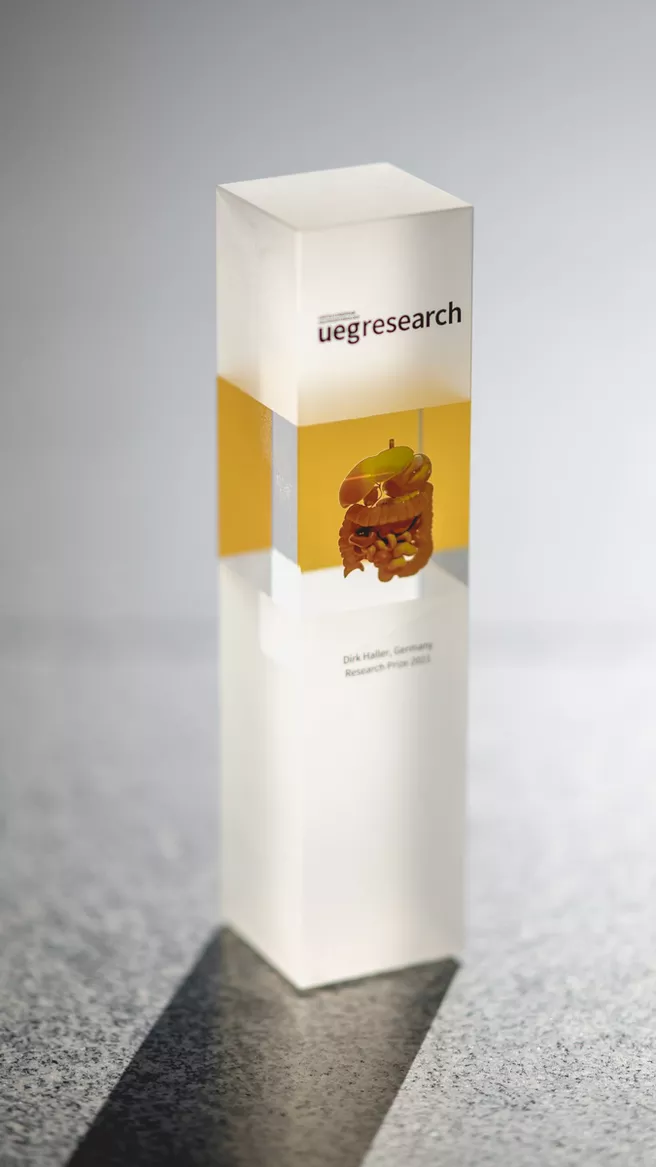Prof. Haller started his scientific career in basic sciences at the interface of food microbiology and nutritional physiology/immunology. “When I started my PhD, nobody believed in a meaningful role of commensal bacteria in the gut, i.e. microbes that feed on the food residues of a host organism without harming it,” says Prof. Haller.
His first paper in Gut showed for the first time that bacteria-epithelial cell interactions in a non-infectious way are real. “This was in 2000 and I then realized that inflammatory bowel diseases (IBD) are paradigm diseases to study commensal microbe-host interactions,” says Haller.
Fascinated by the gut and its mysterious ways of communicating to the outside world
At that time he started his post-doc in Balfour Sartor’s lab in Chapill Hill North Carolina. He started in those days to work with germ-free models. “I ever since remained in the field of gastroenterology, and I am still fascinated about the gut and the many mysterious ways our organism is communicating with the outside world,” he said.
Dirk Haller is a basic scientist at the interface of different research fields (gastroenterology, microbiology, immunology and nutrition science). “To make sure that our approaches are relevant, the clinical translation of our work was and still is a central vision of my research. I feel very privileged and honoured considering the fact that a nutrition scientist was able to make valuable contributions to clinically relevant questions,” says Haller.
New therapeutic options for inflammatory bowel diseases to be tested
The goal of Prof. Haller's project is to use mitochondria-protecting therapeutics for wound healing in the intestine, and thereby develop a supportive therapy for inflammatory bowel diseases. ”More than 10 years of work in this area suggests that mitochondrial perturbations and metabolic impairment of the intestinal epithelium causes metabolic injury. If this is true, we can think about using other therapeutic approaches to generate clinical benefit,” says Haller.
He and his team will now use the €100,000 prize money to investigate the impact of mitochondrial therapeutics and their impact on IBD-related tissue wounding. This will complement their ongoing research looking at microbiome-related factors in the regulation of metabolic injury.
More Information:
United European Gastroenterology (UEG) is a professional non-profit organization uniting all leading European medical specialty and national societies focused on digestive health. Member societies range from general gastroenterology and surgery to more disease- or organ-oriented and special interest associations on a pan-European level. Together, they represent more than 30,000 specialists in all areas of digestive health.
Editing:
Dr. Katharina Baumeister
TUM Corporate Communication Center
Press and Public Relations
Scientific Contact:
Prof. Dr. Dirk Haller
TUM School of Life Sciences
Chair of Nutrition and Immunology
Tel. +49 8161 71 2026
dirk.haller(at)tum.de


